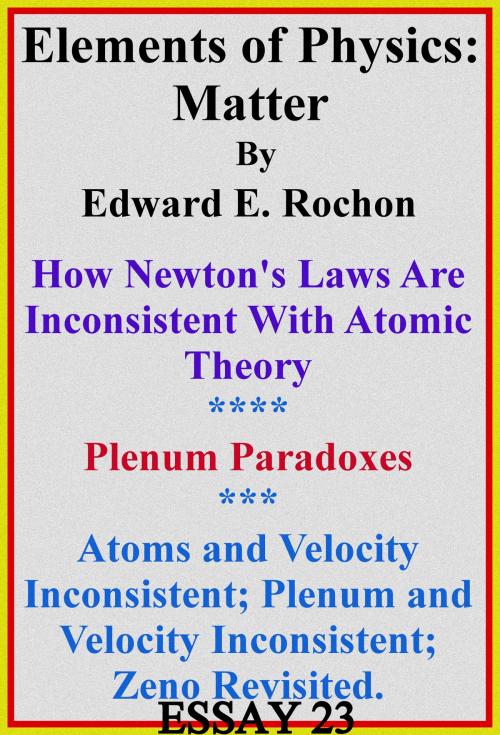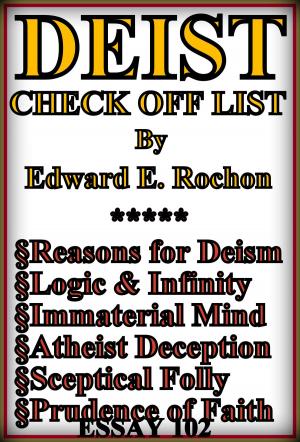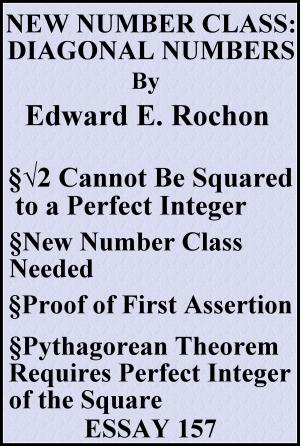Elements of Physics: Matter
Nonfiction, Religion & Spirituality, Philosophy, Metaphysics, Science & Nature, Science, Physics, General Physics| Author: | Edward E. Rochon | ISBN: | 9781311316059 |
| Publisher: | Edward E. Rochon | Publication: | April 14, 2014 |
| Imprint: | Smashwords Edition | Language: | English |
| Author: | Edward E. Rochon |
| ISBN: | 9781311316059 |
| Publisher: | Edward E. Rochon |
| Publication: | April 14, 2014 |
| Imprint: | Smashwords Edition |
| Language: | English |
This is the first of at least three essays on the elements of physics. I have dealt with these ideas in other works to some extent, but feel no compunction in laying them out in different formats for readers to grasp the full import. And extraneous matters in other works of mine where these problems crop up may dissuade other readers from perusing them. The first chapter points out logical contradictions in the classical theory of atoms. It shows that it is inconsistent with known properties of matter under the stress of force brought about through acceleration. The second chapter discusses inconsistencies in the plenum supposition. It first supposes that a plenum has one basic substance, and shows this is also inconsistent with known properties of matter. Such a simple substance cannot explain the world and its differing objects coherently. I also point out that a plenum is a continuum and inconsistent with a finite world of distinct objects and also incompatible with mathematical truths. The third chapter supposes a plenum of compound substances. This will not work either because it is inconsistent with known properties of physics and requires infinite velocity to be considered. But infinite velocity is illogical in a finite framework of matter, space and time. In the fourth chapter I ridicule the assumptions of modern physics that amount to a world composed of nothing, not just almost nothing, but nothing. I once again explain my own theorem of motion briefly that explains all of these inconsistencies and of those of the past ages.
This is the first of at least three essays on the elements of physics. I have dealt with these ideas in other works to some extent, but feel no compunction in laying them out in different formats for readers to grasp the full import. And extraneous matters in other works of mine where these problems crop up may dissuade other readers from perusing them. The first chapter points out logical contradictions in the classical theory of atoms. It shows that it is inconsistent with known properties of matter under the stress of force brought about through acceleration. The second chapter discusses inconsistencies in the plenum supposition. It first supposes that a plenum has one basic substance, and shows this is also inconsistent with known properties of matter. Such a simple substance cannot explain the world and its differing objects coherently. I also point out that a plenum is a continuum and inconsistent with a finite world of distinct objects and also incompatible with mathematical truths. The third chapter supposes a plenum of compound substances. This will not work either because it is inconsistent with known properties of physics and requires infinite velocity to be considered. But infinite velocity is illogical in a finite framework of matter, space and time. In the fourth chapter I ridicule the assumptions of modern physics that amount to a world composed of nothing, not just almost nothing, but nothing. I once again explain my own theorem of motion briefly that explains all of these inconsistencies and of those of the past ages.















